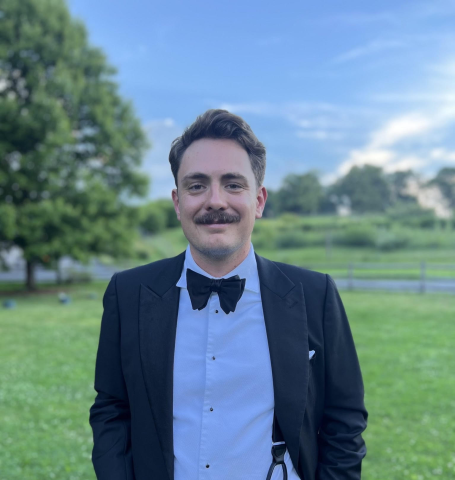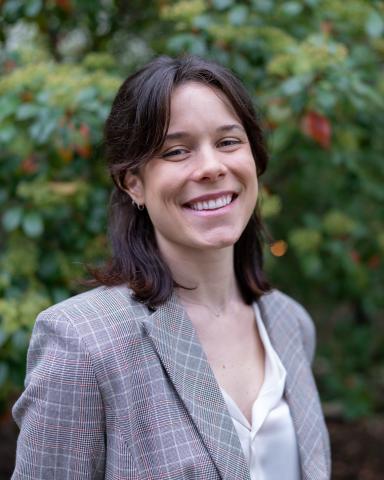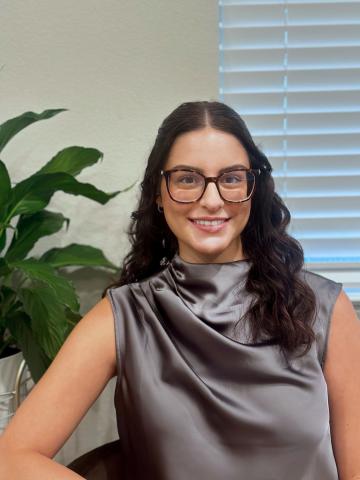The RGK Center awards the Kozmetsky Fellowship to incoming LBJ School students who are interested in pursuing a career in the nonprofit sector. This fellowship is named for Ronya and George Kozmetsky, who gave the founding gift to the RGK Center in 2000. This year, we are proud to welcome three Kozmetsky fellows to the 40 Acres to pursue their studies at the LBJ School. Read more about our student fellows below.

Dylan Driscoll
Hometown: Austin, TX by way of Mount Airy, MD
Policy Area of Interest: Global Food and Hunger Policy
What drew you to pursue a degree in public policy? Why did you choose the LBJ School?
I want to study the global food system and the successes and failures of hunger relief. I want to learn how policy has sought to feed those in need, or made them hungry in the first place. I came to LBJ for its fidelity to a blend of theory and practice, its interdisciplinary ethos, and the leadership of its faculty in the global food system.
Why are nonprofits important to you or to society as a whole?
It’s particularly clear in 2025 that the social safety net is fraying. Nonprofits have an opportunity to fill the gap if they’re willing to be bold. I believe, in particular after the pandemic, that my generation is reconsidering our values about work and what it means to have a meaningful, fulfilling career. I and many of my peers have pivoted into nonprofit work from other careers. Thus there is an enormous opportunity for us to advocate for innovative solutions to stubborn social problems. Who else will?

Sydney Mike-Mayer
Hometown: Heath, Texas
Policy Area of Interest: Social Policy
What role does the nonprofit sector play in your personal and/or professional life? Why are nonprofits important to you or to society as a whole?
The nonprofit sector is where I found my professional purpose. It’s where I learned how to collaborate across disciplines, work creatively under pressure, and stay grounded in the stories and needs of real people. Nonprofits have the unique ability to respond quickly and compassionately to systemic failures—and to advocate fiercely for the communities they serve.
Who or what inspires you?
I’m inspired by the individuals and organizations that continue showing up to create positive change, despite the odds. Their resilience and hope are what keep me motivated to stay in this work. I’m also inspired by the mentors and colleagues I’ve had who model what it means to lead with both integrity and imagination.

Helaina Musa
Hometown: Lubbock, Texas
Policy Area of Interest: Social Policy and Human Rights
What drew you to pursue a degree in public policy? Why did you choose the LBJ School?
I have always wanted to have an active part in correcting social disparities, and public policy, to me, is the most effective path to systemic change. Changes to public policy offer the opportunity to address root causes, rather than temporary solutions, and create long-lasting, equitable outcomes for underserved communities. The LBJ School stood out for its strong emphasis on real-world application, especially its focus on professional development, community impact, and public service. I was specifically drawn to the number of alumni working in the nonprofit and advocacy space. I see nonprofits as the link between grassroots needs and institutional reform, and I believe the LBJ School and the RGK Center are uniquely positioned to prepare students to thrive at that intersection.
What are your career goals?
My ultimate goal is to work for an organization that not only delivers vital services to those in need but also drives policy change to dismantle the systemic barriers that create and perpetuate that need. I believe that it is equally as important to strive for effective policy changes as it is to provide direct services that support the communities being advocated for. Nonprofit organizations bridge the gap between advocacy and action by providing direct services to vulnerable citizens while also laying the foundation for long-term solutions by advocating for changes to public policy.